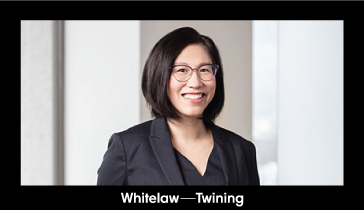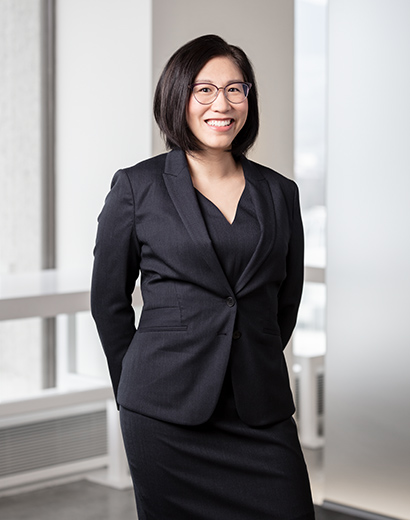 Biographical Information
Biographical Information
Gaynor is currently a bencher and serves on the Practice Standards and Ethics Committees. Gaynor is a lawyer, mediator, and partner at Whitelaw Twining. Since being called to the bar in 1996, she has practiced insurance law, litigating a broad array of matters but primarily focusing on personal injury and professional negligence claims. She has defended and advanced cases at all levels of court in British Columbia. She continues to be recognized by the Best Lawyers in Canada as a leading litigator in both Insurance Law and Personal Injury Litigation. Throughout her career, Gaynor has been an active volunteer in the legal community. In 2018, the Vancouver Bar Association recognized Gaynor with the Peter S. Hyndman Mentorship award for her work with students and junior practitioners. She continues to mentor our next generation of lawyers through the CBA Women Lawyers’ Forum, the Federation of Asian Canadian Lawyers, and the Peter A. Allard School of Law (as well as guest lecturing at the university and at VBA programming). She recently completed her second term as a member of the Advisory Committee to the Judicial Council. Gaynor is a volunteer for the Lawyers’ Assistance Program and Access Pro Bono.
Election Statement
I believe that our profession is enriched by a supportive and diverse legal community. To me, that means that its members demand from one another the highest standards of integrity, professionalism, equity, diversity, and inclusion. It means that we engage with one another to reach those standards in a compassionate manner, and that we continue to do the work to have diverse representation in our profession.
To that end, I intend to:
• Expand on the positive steps already taken by the Benchers to destigmatize mental health challenges. I will continue to amplify the importance of mental wellness in multiple aspects of our profession. For instance, acknowledging the impact of mental health issues in my work on the practice standards committee; reducing stressors on our members by supporting alternate, modernized working arrangements (the viability of which has been proven during the pandemic); alleviating the pressures of accessing limited articling positions through the consideration of alternatives to traditional articling experiences; and supporting the continued education of practitioners and legal employers on not only destigmatizing, but prioritizing, mental wellness.
• Identify issues that impact achieving equity, diversity, and inclusion in legal workplaces, particularly in leadership roles, and seeking solutions to those issues. For instance, supporting lawyers and legal employers, who seek to be allies for change, through the provision of educational resources including continuing professional development programming.




